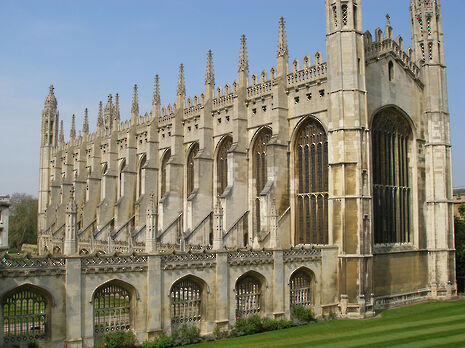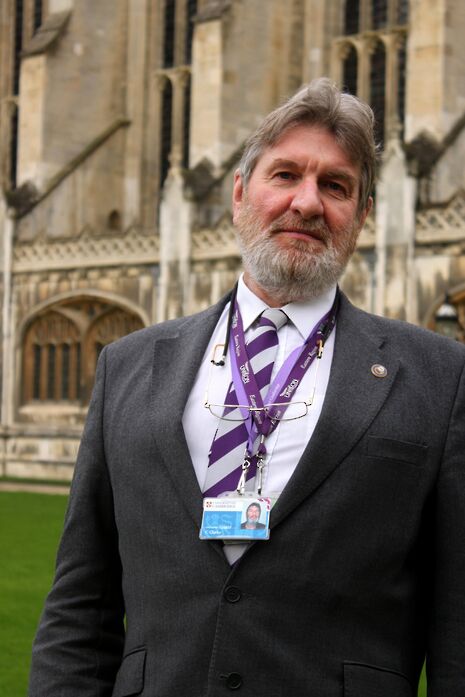Over 1,000 paid below living wage
Figures reveal that 906 staff are on zero-hours and casual contracts with King’s coming out worst in table of colleges paying the living wage

28 of Cambridge’s 31 colleges are failing to pay hundreds of staff a living wage, according to newly released figures which lay bare the extent of low pay and precarious employment at the University of Cambridge.
In the same month that it was revealed the university’s vice-chancellor had received a £20,000 pay rise, records released under the Freedom of Information Act show that 1,113 college and university staff are receiving wages of less than £7.65 per hour.
The living wage, which represents a £1.34 increase over the minimum wage, is said to be the minimum hourly wage on which a person can support themselves, and is calculated annually by the Centre for Research in Social Policy.
The figures, which cover the month of November 2013, also reveal for the first time the widespread use of zero-hours and casual contracts at the university, with more than half of all colleges involved.
Some 906 staff across the university are working on the flexible contracts, meaning they have no guarantee of work, and may lack access to maternity and redundancy rights, and protection from unfair dismissal. There were calls to outlaw the controversial contracts from some MPs and trade unions, after they were the subject of a House of Commons debate last October.
The university itself reported employing 343 workers on zero-hours contracts and 83 staff paid less than £7.65 per hour. Among the colleges, King’s College led with 123 workers paid under the living wage, followed by Clare with 85, Churchill with 57 and Peterhouse with 53. Cambridge’s wealthiest colleges, Trinity and St John’s, reported 50 and 33 under the living wage respectively.
Fiona Woolston, one of CUSU’s Living Wage Officers, said: “The living wage is about respect. It’s about acknowledging that every person who contributes to the success of this university should have the right to an appropriate standard of living for themselves and their family, or to be able to confidently save for such a future. “The Cambridge Vice Chancellor now earns £334,000, in contrast to the £14,789 earned each year by a member of staff on the living wage; however, many staff do not even receive this.”
Homerton College* and Hughes Hall were alone in reporting that they employ no staff paid below the living wage or on zero-hours contracts. St Catharine’s also pays all staff the living wage, but has 18 workers on flexible contracts. However, a number of colleges, including Trinity, Downing, Fitzwilliam and Peterhouse have suggested that in addition to their hourly wage, bonuses and benefits should be taken into account.
Paul Warren, bursar at Clare College, said that “when bonuses and benefits at Clare are included we do not have a single permanent member of staff” earning less than the equivalent of £7.65.
Colleges also reported that a number of the staff paid under the living wage or working zero-hours contracts were students working part-time, or ‘casual’ workers with other jobs. Jesus College said that “many of the zero-hours workers are students looking for experience and people who need some flexibility in their working arrangements.”
A spokesman from the University referred to its guidance on pay: “[T]he majority of jobs below the living wage are generally trainee grades or individuals on zero hours contracts.” Late last year, Oxford University agreed to pay the living wage to its in-house staff, but without a guarantee that outsourced agency staff would receive the same. Most university colleges in London have been living wage employers for a number of years.
A number of Cambridge colleges, said that they are keeping their basic rate of pay under review. Selwyn said that staff can expect to see a pay rise in line with the living wage later this year. “It is likely that we will adjust again at the annual pay round next August, but there is currently a timing difference,” said Nick Downer, bursar at Selwyn.
The investigation has also uncovered that more than half of all colleges are using staff from external employment agencies, often to cover tasks such as catering on an ad hoc basis. Temporary agency workers have no access to redundancy pay or the right to claim unfair dismissal. When asked whether these workers were paid the living wage, the university and a number of colleges said the information was unavailable. Only Newnham and Peterhouse said that all their agency staff are paid the living wage.
Figures also show that 51 staff across the university have opted out of the Working Time Regulations EU directive, which sets a maximum working week of 48 hours. These employees are potentially working more than 9 hours per weekday.
*Since publication it has emerged that while Homerton College employs no permanent staff paid less than the Living Wage, it has a number of casual workers paid less than £7.65 per hour. This means that the number of staff paid under the living wage is likely higher than is reported above. The Cambridge Living Wage campaign has requested that an internal review take place to determine why this information was not recorded in Homerton's Freedom of Information response.
PERSPECTIVE CHRIS CLARKSON: KING'S COLLEGE PORTER

Chris Clarkson has been working as a porter at King’s College on and off for 17 years. He has attended meetings of the Living Wage Campaign and has raised the issue in a staff consultative group.
What’s the reason for your interest in the Living Wage Campaign?
It’s basic fairness, I just think it’s the right thing to do. I get [paid] over the living wage but there’s a lot of people who don’t. It’s wrong that they don’t really. I think people should get paid enough for a decent standard of living.
Were you aware that King’s had the highest number of staff being paid below the living wage?
I wasn’t. And I was quite surprised to be honest with you. I always thought Kings was quite a progressive liberal college.
Have you discussed the issue with your colleagues?
I’ve discussed it with people in the porters’s lodge and I’ve tried to discuss it with a few of the bedders, and they’re in favour of it basically. [Whether] they’re union people or not, it’s the fairness thing really.
What do you think is stopping it from being implemented?
Well, the college seems to think that it does pay over the living wage when you take into consideration pensions, car parking and the like. But that’s not really the issue, especially for the part-time staff.
There are free meals on duty but that’s only if you’re actually here while the meals are being served and if you’re working full time, so I don’t think they can take that into consideration at all.
Why should students be informed about the cause?
The students I’ve come into contact with, some of them are the prime movers in it. But a lot of the people that the students come into contact with are the bedders, and I think they should realise that they get paid under the living wage.
I think students reflect society as a whole – there are a lot of people whom it doesn’t affect and so aren’t aware of [the issue], so it’s just a matter of consciousness and getting made aware of these situations. That’s why I try to engage people in conversation to make them [more] aware.
 News / Clare Hall spent over £500k opposing busway 24 December 2025
News / Clare Hall spent over £500k opposing busway 24 December 2025 Comment / The ‘class’ of Cambridge24 December 2025
Comment / The ‘class’ of Cambridge24 December 2025 News / Caius mourns its tree-mendous loss23 December 2025
News / Caius mourns its tree-mendous loss23 December 2025 Comment / League tables do more harm than good26 December 2025
Comment / League tables do more harm than good26 December 2025 News / Girton JCR publishes open letter expressing solidarity with Palestine25 December 2025
News / Girton JCR publishes open letter expressing solidarity with Palestine25 December 2025









